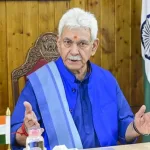In the vast landscape of human existence, where the quest for knowledge often takes precedence, there lies a profound truth about the nature of learning and the impact it can have on one’s soul. It is a reminder that not all learning leads to enlightenment. In our ceaseless pursuit of knowledge, it is crucial to discern between the mere accumulation of information and the profound understanding that can transform our lives.
Imagine a scholar, hunched over ancient tomes, his fingers tracing the faded ink of long-forgotten authors. His life is a relentless cycle of reading and writing, a dedication so absolute that he seems to have lost touch with the world around him. His eyes, once bright with curiosity, now reflect a dull weariness, a consequence of endless hours spent poring over texts. This scholar, in his fervent quest for knowledge, has turned into something unyielding – rigid, unfeeling, and detached.
There is a certain irony in this transformation. The very pursuit that was meant to enrich his soul has, instead, ensnared him in a prison of intellectual rigidity. He has become unyielding, devoid of the warmth and vitality that true wisdom brings. As the philosopher Friedrich Nietzsche once said, “He who fights with monsters should be careful lest he thereby become a monster. And if you gaze long enough into an abyss, the abyss will gaze back into you.”
On the other hand, consider the writer whose days are spent crafting words with the intention of leaving a mark on the world. His ambition is not to illuminate but to impress, to garner accolades and acclaim. In his relentless pursuit of recognition, he loses his moral compass. The purity of his craft is tainted by his desire for fame and fortune. He writes not to share truth but to manipulate, to deceive. In this, he becomes a thief, stealing not only from others but also from himself, robbing his words of their inherent honesty.
The writer’s transformation into a thief is a cautionary tale about the dangers of ambition unchecked by integrity. As the renowned writer and poet John Keats aptly observed, “A thing of beauty is a joy forever: its loveliness increases; it will never pass into nothingness.” Yet, when beauty is marred by ulterior motives, its joy is fleeting, its loveliness diminished.
Amid these cautionary tales, there lies a glimmer of hope – the possibility of a different kind of learning, one that leads to a profound understanding and inner peace. This is not a literal divine presence, but rather a state of enlightenment, of profound understanding and inner peace. It is the pursuit of knowledge that transcends the mundane and touches the eternal, the sacred.
This path calls for a different approach to learning. It demands that we read not just with our minds but with our hearts. It encourages us to seek wisdom that nurtures the soul, that fosters compassion, empathy, and a deep connection with the world around us. As the Dalai Lama eloquently states, “Love and compassion are necessities, not luxuries. Without them, humanity cannot survive.”
True learning is not a solitary endeavor. It is a journey that connects us with the collective wisdom of humanity, past and present. It is an exploration of ideas that challenge us, inspire us, and ultimately transform us. This kind of learning requires humility, an acknowledgment of the limits of our understanding, and a willingness to be changed by what we discover.
In the words of Albert Einstein, “The important thing is not to stop questioning. Curiosity has its own reason for existing.” This curiosity is not driven by a desire for accolades or recognition but by a genuine yearning to understand, to grow, and to contribute to the greater good.
When we engage in true learning, we experience an alchemy of sorts. Words, when approached with reverence and intention, have the power to transform us. They can unlock new perspectives, heal old wounds, and forge connections across time and space. This is the magic of literature, of philosophy, of any discipline that invites us to look beyond the surface and delve into the depths of human experience.
Consider the works of great writers and thinkers who have illuminated our understanding of the world. Their words resonate not because they were driven by ambition or the desire for recognition but because they sought to share a deeper truth. As the poet Rumi beautifully articulated, “Let yourself be silently drawn by the strange pull of what you really love. It will not lead you astray.”
The pursuit of true knowledge is a call to authenticity. It urges us to pursue learning not for its own sake but for the enrichment of our souls and the betterment of humanity. It reminds us that true wisdom is not measured by the number of books we have read or the accolades we have received but by the depth of our understanding and the purity of our intentions.
In a world where information is abundant but wisdom is scarce, this message is more relevant than ever. We are bombarded with data, with opinions, with noise. It is easy to become overwhelmed, to lose sight of what truly matters. Yet, if we heed the call for true understanding, we can navigate this sea of information with grace and discernment. We can seek out the knowledge that nourishes our souls and guides us toward a higher understanding.
The journey towards true learning is a lifelong one. It requires patience, perseverance, and a willingness to be vulnerable. It is a path that is often fraught with challenges but also rich with rewards.
As we walk this path, let us pursue the kind of learning that leads to enlightenment that enriches our souls and connects us with the greater tapestry of human existence. In doing so, we will find not only knowledge but also wisdom, compassion, and a profound sense of purpose. In this way, the themes of the verse unfold into a rich tapestry of meaning, inviting us to reflect on the true purpose of learning and the profound impact it can have on our lives.
(Author is a columnist and can be reached at: [email protected])








